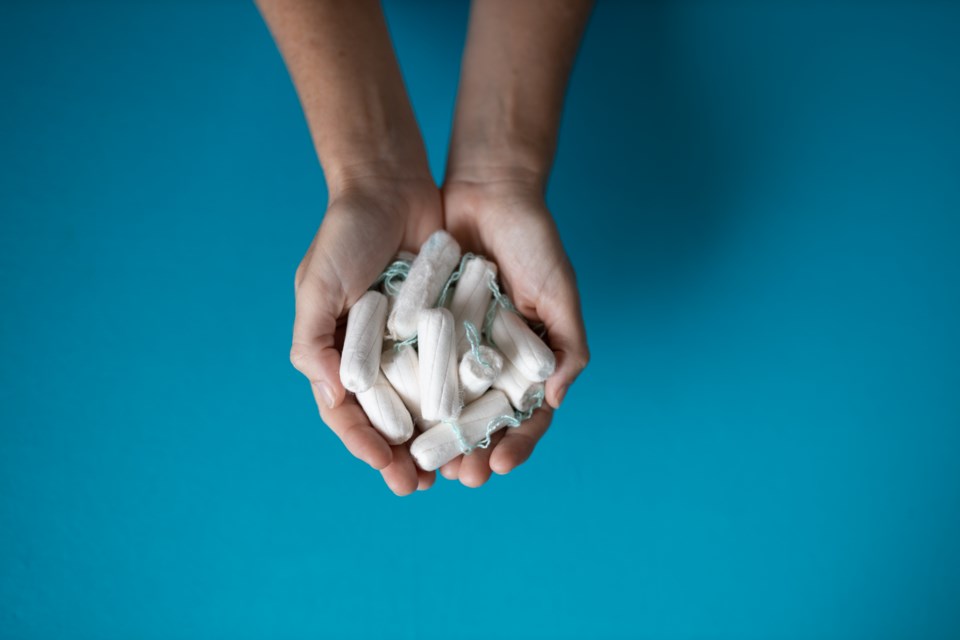About 21 per cent of people who menstruate in Canada struggle to buy menstrual products because of the expensive prices, according to a survey from Plan International Canada.
Most survey respondents, men and women, support free menstrual products in schools.
At present, 500 million people in the world struggle with period poverty, which limits a person's access to menstrual products. The lack of access harms menstruating people's health, increases their chances of missing school, and creates more stigma and shame about having a period.
One in 5 menstruating people uses products longer than recommended because they can't afford to buy more for their cycle.
The statistic increases to 33 per cent for people with household incomes under $50,000 and 48 per cent for Indigenous people.
"We've seen some progress over the years on period poverty, but equitable access to menstrual products –availability and affordability to everyone, everywhere – is just the first step and the bare minimum," said Saadya Hamdani, director of Gender Equality and Inclusion at Plan International Canada in a press release.
"This ensures the dignity of every person who needs them, particularly those from vulnerable populations and in low-income countries."
Free menstrual products in schools and facilities
In 2019, the B.C. government required all schools to provide students with free menstrual products.
The New Westminster school board became the first school district in the province to provide its schools with menstrual products following the formal announcement.
But New West schools aren't the only places that offer access to free tampons and pads. Menstruating people can find free period products at some facilities across B.C.
The city of North Vancouver began a pilot program this year in collaboration with United Way of the Lower Mainland to provide free products in select facilities and public places.
Similarly, United Way collaborated with the city of Richmond last year, providing period products at 18 public facilities in the municipality.
In Coquitlam, menstruating people can find tampons and pads in women's and unisex washrooms at 25 new locations, including outdoor pools and parks in the city.
"There are already too many barriers to girls' and young women's empowerment – period poverty shouldn't be one of them," said Ziyaan Virji, a Plan International Canada youth ambassador and founder of For the Menstruator, in a press release.



.jpg;w=120;h=80;mode=crop)

